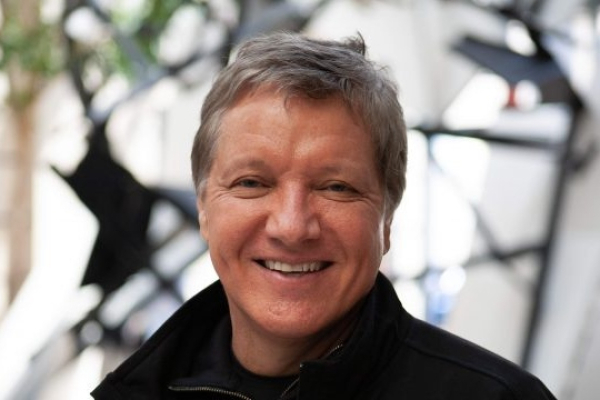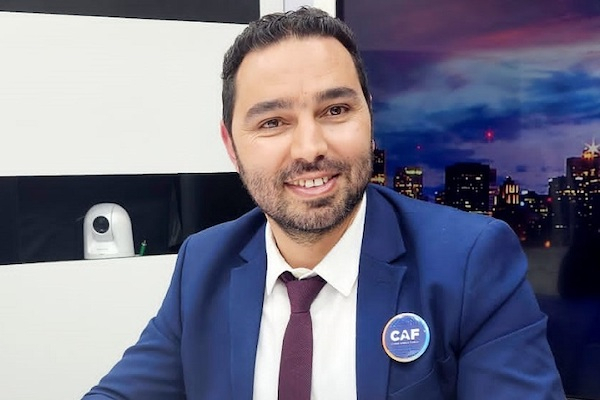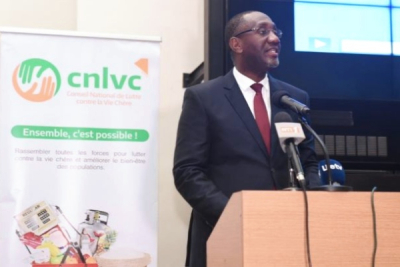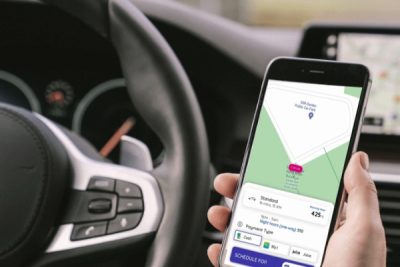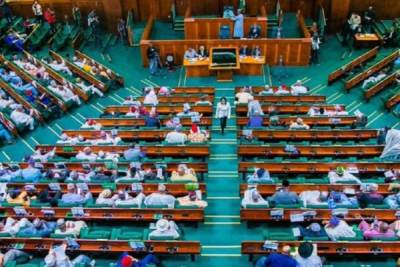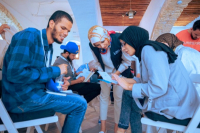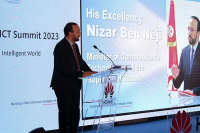With over 40 years of experience in technology, corporate leadership, and venture capital investment, he founded LifeQ, South Africa's top independent provider of biometrics and health information obtained from wearable devices
Laurence Olivier is the CEO and co-founder of LifeQ, a South African-based technology company that specializes in wearable health technologies. He obtained his bachelor's degree in electronic engineering from the University of Pretoria in 1980. Additionally, he holds a Bachelor's in Advanced Finance and Strategic Marketing and a Diploma in Data Metrics from the University of South Africa in 1984 and 1986, respectively.
He established LifeQ in 2014 with Franco du Preez and Riaan Conradie to empower people to better understand their health and well-being. By harnessing its sensors, LifeQ provides commercial-grade, near-clinical health information feeds that generate health and wellness solutions for consumers, businesses, and clinical applications.
The company’s innovative solutions have attracted major brands such as Tag Heuer, Louis Vuitton, Hublot, Montblanc, Fossil Group, Samsung, Suunto, Xiaomi, and Motorola, resulting in numerous partnerships.
"LifeQ offers a 24/7 lens into the body, generating actionable health insights from personal wearable devices and assisting in screening for disease and illness and uncovering its root cause," said Olivier in February 2023.
In April 2023, the tech entrepreneur launched the first phase of LifeQ's virtual, personalized, preventive, and real-time care platform at the Health Information Management Systems Society (HIMSS) in Chicago. That same month, the company was selected as one of the 40 African start-ups participating in the first edition of the Africa Unicorns program.
Besides LifeQ, Olivier is a partner at venture capital firms 4Di Capital and Veritas Venture Partners. He also serves on the boards of Transatlantic Venture Management, Global Nutrition & Health, and the University of Pretoria, among others. From 2006 to 2009, he served on the boards of the Atlanta Venture Forum and the Jewish Federation of Greater Atlanta.
Melchior Koba
At a time when protecting sensitive data and enhancing cybersecurity are seen as a challenge shared by African countries, experts are increasingly advocating for public and private actors to pool efforts to sanitize the cyberspace.
On the sidelines of the Cyber Africa Forum (April 24 -25, 2023) in Abidjan, Youssef Mazouz, Secretary General of the African Cybersecurity Center, agreed to be interviewed by Ecofin Agency and We Are Tech on the vision of his center and its solution to common cybersecurity challenges in Africa.
We Are Tech: Hello Dr. Mazouz, as the Secretary General of the African Cybersecurity Center, what do you think is the current need for cybersecurity professionals in Africa?
Youssef Mazouz: Hello, I am Dr. Youssef Mazouz, as you mentioned. I work a lot in cybersecurity through an NGO that brings together cybersecurity professionals, security and information system managers. Africa has been undergoing a digital transformation in recent years and there is an obligation to support this digital transformation by controlling risks and cybersecurity. The threats are there and African organizations are now taking the protection of their data and their IT infrastructure seriously. So, cybersecurity is becoming a critical field that should follow the development and changes in the digital world.
The CAF, which brings us together around this theme, focuses on this crucial subject. Unfortunately, most of the top managers of African organizations are not yet aware of the importance of cybersecurity. For them, it is a cost item, so events like this are essential to show that cybersecurity is an area that must be taken seriously because if we do not take into consideration the protection of data, we can face huge losses. We have examples of companies that have lost millions while others have had their businesses shut down for some time due to a cyber attack.
WAT: Do you feel that the continent currently has the human capital to protect its institutions against cyber attacks?
YM: You mentioned a key element, which is the human element. Truly, there are some technology components. There are many data and infrastructure protection as well as cybersecurity solutions. However, if there is no human talent to make the solutions work or back them up, the technologies won’t offer optimal protection. It is, therefore, necessary to support Africa by setting up continuous training, building skills, and opening cybersecurity research centers and universities. Moreover, we have an agreement with a university in Morocco to start cybersecurity research and build skills capable of following this evolution in the field of data protection and infrastructure protection.
WAT: What do you think are the main challenges to skill-building in African countries?
YM: The first challenge is how to keep our talents. Africa has skills but the problem is the exodus. They leave because there is a strong demand for digital skills elsewhere. We see engineers emigrating to Canada or Europe to work there. So we must keep a space capable of absorbing our talents in Africa. We must set favorable conditions for them to work and provide incentives to stay on their continent and in their country. I know that most of these skills want to stay in their countries, but they find out that they are not offered optimal working conditions. That is why they leave. We thus need to retain them.
WAT: So, you are suggesting public investment in the sector should be improved?
YM: Of course. Governments need to invest in research and training. They need to realize that information systems are value-creation tools, not cost items as they think. They can create value with a safe and efficient digital transformation.
WAT: What are your recommendations for the improvement of the supply of skilled professionals on the continent?
YM: I think the first thing is to have a synergy between countries by pooling skills and exchanging expertise. There are experts everywhere on the continent, so we must capitalize on them. This is why we have created the African Center for Cybersecurity, which brings together cybersecurity professionals. The center’s first goal is to build synergy between cybersecurity professionals in Africa. Last year, we launched an initiative to create an African cybersecurity alliance that brings together professionals from 12 countries for now. The information systems security manager (ISSM) or cybersecurity engineer cannot live in isolation, because new threats come up daily. There won’t be effective protection if cybersecurity professionals fail to share information on those threats. That's why we need to build this synergy and create an exchange network to develop expertise and develop threat information sharing.
WAT: How does the African Cybersecurity Center work with governments and businesses to strengthen the security of information systems in Africa?
YM: The center is an NGO and as such it has a lot of leeway as a civil society organization because it does not report to states. That is why we have insisted on this civil society model to have a wider scope of work. We work in collaboration with States and governments by organizing seminars, awareness days, etc... We also work with the private sector through exchanges and training with their CISOs. To share expertise with cybersecurity professionals, we also organize thematic days.
WAT: What steps should African governments take to strengthen cybersecurity regulations and protect citizens against cyber attacks?
YM: The first thing is to work under the umbrella of the African Union (AU). We know that the AU established a Cybersecurity convention in 2014 in Malabo, but as of 2022, only 13 out of 55 countries had ratified that convention. This shows that countries have not yet reached the maturity to create this cybersecurity momentum on the continent.
In Europe, they have the GDPR (General Data Protection Regulation, ed.), which is a law imposed not only on European countries but also on African countries and other continents. So if you want to work with Europe, you have to respect the measures mentioned in the GDPR. Why can't we create a regulatory framework under the aegis of the AU which would be an equivalent of the RGPD to keep and ensure the digital sovereignty of the African continent, that is to say, to protect the African data, of Africa and for Africa. So when we work with providers from Europe, they will have to comply with this legislation.
WAT: Have there been any recent developments in cyber security in Africa?
YM: Africa is undergoing fast digital transformation but, cybersecurity measures are slow to follow. This is due, on the one hand, to the difficulty of establishing a cybersecurity culture, because as I mentioned, decision-makers are not yet really aware of cybersecurity. So, to accelerate this cybersecurity process, we first need to work on raising awareness, involving the media, and talking about cybersecurity as a very important area. We also need to start investing money in the sector, through the creation of data centers for Africa and why not exchange with African countries to create a data center for Africa to protect sensitive African data without having to host them with a foreign provider over which we have no control. So we must invest in African infrastructure for Africa.
We must also back this process with quality training and ensure optimal working conditions for cybersecurity staff. Finally, we must establish the laws and regulations necessary to accompany these developments.
WAT: How is the African Cybersecurity Center adapting to the evolutions in the African cybersecurity sector?
YM: Of course, we have African experts that we are proud of. We do not rely on foreign experts. And these experts work on support, and the implementation of awareness guides distributed to companies and members. We also create vulnerability bulletins by discussing with our local members who are CISOs. This means that if a threat or a risk is detected by one of our members or collaborators, we integrate it into a monthly vulnerability bulletin that we distribute. So there are several practices that we implement in the center to try to create a movement or a synergy in the field.
Interview by Moutiou Adjibi Nourou and Muriel Edjo
Twitter CEO Elon Musk (photo) announced in a tweet published on Thursday (May 11) the launch of the first version of encrypted direct messages on the platform. The feature allows subscribers to communicate without the platform storing their messages, which will only be available on their devices. Musk also mentioned that other features, such as voice and video calls, will be added 'soon’.
The Ivorian Minister of SMEs Souleymane Diarrassouba (photo) launched on Monday (May 8), a mobile application to fight against the cost of living crisis and monitor market prices.
According to the government official, the app dubbed “contrôle citoyen” allows any resident to report illegal pricing practices, the sales of outdated goods, and merchants who fail to display their prices.
The solution was launched by two foreign students in Mauritius as they believe the country is the best place to start, to quickly penetrate Southern African markets.
Vite is a digital solution developed by a Mauritian start-up. It allows users to book rides and parcel deliveries.
Through its mobile app, accessible on Appstore and Playstore, users can use its on-demand transportation services or even request the delivery of items like food, spice, etc as well as send for an errand. The platform integrates a WhatsApp link for users to report any issues that arise.
The solution claims more than 700 partner drivers, over 10,000 customers served and more than 24,500 trips and orders completed. To improve its efficiency, it is partnered with various entities. For example, it provides delivery services to more than 250 restaurants.
Based in Grand Bay, its founding startup was launched, in 2017, by Isaac Agyemang and Ukeme Augustine Jonah, two foreign students. Commenting on why it was launched in Mauritius, Vite’s chief marketing officer Anthony Takyi said: “If you are going to do business and get things smoother than smooth in Africa, Mauritius is certainly the starting point. It is the gateway to the SADC region.”
In 2020, the startup completed a funding round of an undisclosed amount to develop its technology and accelerate its growth. It is growing steadily and hopes to expand into the sub-region in the coming years. To date, its Android app has been downloaded more than 10,000 times from PlayStore.
Adoni Conrad Quenum
Despite significant investment by the government in mobile telecommunications services, a significant portion of Nigeria's population still lacks access to them. Parliament is seeking answers regarding the reasons behind this delay.
The Nigerian House of Representatives on Tuesday, May 9, launched an inquiry to determine why the Nigerian Communications Commission (NCC) has failed to promote the widespread availability and use of mobile telecommunication services throughout the country, especially in rural areas.
The investigation also seeks to question the use of the Universal Service Provision Fund (USPF), which was established by the federal government to facilitate the achievement of the universal service objectives in rural, unserved, and underserved areas.
“It is therefore critical to note that it is not only people residing in urban areas that have the right to telecommunications, consideration should be extended to rural dwellers. [...] The NCC as the regulator needs to ensure proactiveness in ensuring qualitative and efficient services are offered by the telecommunication operators,” said Femi Gbajabiamila, the Speaker of Parliament, at the first public hearing organized by the ad hoc committee of the House of Representatives.
According to NCC figures, Nigeria had 227.1 million mobile subscribers as of February 2023. While this figure represents a penetration rate of around 110 percent, the actual numbers are lower because some subscribers have multiple SIM cards. The NCC estimates that about 27 million Nigerians do not have access to mobile telecommunications services.
So, for three days, NCC officials will be questioned about the 1,014 contracts funded through the USPF, including a digital library project that cost over NGN2 billion ($4.3 million).
Samira Njoya
He founded KondjiGbale to help doctors fulfill their lifesaving tasks. The startup has been celebrated in Togo and beyond and won him several awards.
Yvon Koudam (pictured) is a Togolese entrepreneur and co-founder/CEO of KondjiGbale, a start-up that aims to facilitate access to healthcare.
His startup, founded in 2019, develops medical technology solutions to simplify the daily management and monitoring of people's health. Through its platform, doctors can access patients’ medical records. Patients can also access teleconsultation services every day from 6 am (Togo time) to midnight and order medication by sending their prescriptions. It also lists on-call pharmacies and gives users the possibility to set medication schedules.
KondjiGbale is accessible, in local languages, via many channels including a mobile and web app, a USSD code, a call center, and SMS. It is partnered with three health centers and over 34 health professionals. To date, it has some 5,165 patients and over 500 consultations booked.
In March 2023, Yvon Koudam represented his country at the Brazzaville International Youth Leadership Forum (BILYF). He shared his knowledge and experience on the panel: "Sustainable Development and Digital Economy".
Between 2016 and 2022, the entrepreneur worked as a programmer analyst in the start-up Clin Sarl U in Togo. In that position, he supported the design, programming, and development of applications for clients and companies such as TMoney and AgriStore. In December 2021, he was a guest speaker at the Emerging Valley Summit. Since December 2022, he is the Delegate of the Youth Innovation Week in Togo.
Through his startup, he has won several competitions, including the Pitch Your Startup Idea organized by Enginnova, the French Embassy in Togo, and the Togo Innovation Challenge of the Ministry of Grassroots Development in 2019. A finalist in the Hacking Covid-19 Africa competition initiated by HEC Paris in 2020, he was also among the 10 finalists of the fifth edition of the RFI App Challenge.
Melchior Koba
Adaverse, a Cardano blockchain accelerator focussed on Africa and Asia, announced on Tuesday (May 9) its investment in BitSport, a blockchain-based Web3 gaming platform founded by Victor Ogunshina and Charles Adenuoye. The amount invested was not disclosed.
"Bitsport’s AI-powered Web3 gaming platform represents the future of gaming, and we are thrilled to be a part of it. Adaverse’s investment in Bitsport highlights our commitment to supporting the development of cutting-edge technology that has the potential to revolutionize the gaming industry," said Vincent Li, founding partner at Adaverse.
Fifty Lybian start-ups, including 36 women-led companies, were selected on Saturday (May 6) to participate in the TEC+ Accelerator program launched by UNDP in partnership with Tatweer Research.
The 8-week TEC+ program will allow the selected start-ups to build their physical and scientific capacities to accelerate their growth and create job opportunities in the market.
Tunisia announced the arrival of 5G technology in 2020, and investments have since been made to prepare for its deployment. The introduction of this advanced technology is anticipated to enhance trade and services in the country.
Tunisia is poised to proceed to the commercial launch of the 5G in 2024. The roadmap for its implementation is being developed and will be announced in the coming weeks. This was revealed by Nizar Ben Neji (photo), the Tunisian Minister of Communication Technologies, on Monday, May 8 at the ICT Summit 2023 organized by Huawei Tunisia.
"Pilot tests have been conducted with telecommunications operators. The technology will be gradually deployed dependent on the needs of various users, including businesses and administrations, "said Nizar Ben Neji.
Over the past three years, telecommunications operators have invested heavily in upgrading their networks to prepare for the deployment of ultra-high-speed internet technology. In November 2022, incumbent operator Tunisia Telecom confirmed its ability to offer 5G after a public test conducted on the sidelines of the 18th International Summit of the Francophonie. Ooredoo Tunisia and Orange Tunisia have also conducted successful tests.
The commercial rollout of the 5G is an essential part of Tunisia’s strategy to digitize its economy to promote digital inclusion. According to Nizar Ben Neji, 5G will ensure a significant increase in speed, ultra-fast connectivity, reduced latency, and increased capacity, paving the way for new opportunities and applications especially those related to the Internet of Things and connected objects in general.
In its report "5G in Africa: Realising the potential," the GSM Association (GSMA) reveals that 5G mobile networks are expected to contribute $26 billion to the African economy across the value chain by 2030.
Samira Njoya
More...
Côte d'Ivoire plans to achieve full digital transformation by 2030. For that purpose, the country needs advanced technical and technological talents. Hence its interest in various partners that are already showing their interest in the market.
A delegation of 220 French companies specializing in digital infrastructure will be in Abidjan, Côte d'Ivoire from May 11 to 12. According to the Ministry of Communication and Digital Economy, which released the information on Monday, May 8, the companies will take part in the “Rencontres Internationales des infrastructures numériques” (International conference digital infrastructure).
During the two-day conference, participants will showcase their expertise in various areas including telecommunications networks, cloud infrastructure, and data management. They will also hunt for business opportunities in Côte d’Ivoire, where the government is currently engaged in a broad digital transformation project.
"The International Conference on Digital Infrastructure is an international event aimed at fostering exchanges, partnerships, and business opportunities in the field of digital infrastructure. This event will bring together experts, public and private sector actors, as well as investors interested in the development of digital infrastructure in Côte d'Ivoire," informed a release from the Ministry of Communication and Digital Economy.
In October 2022, Digital Minister Amadou Coulibaly (photo), revealed the country's need for more than CFAF 2,000 billion ($3 billion) in investments for the implementation of the 96 projects covered by its 2021-2025 digital development strategy. Many of the projects aim to improve the access, quality, and security of digital services.
The projects offer significant business opportunities for the participating tech companies. The Ivorian government expects the conference will be an opportunity to attract strategic partnerships to support the realization of its digital projects, the most urgent of which are the construction of the National Data Center and the completion of the national fiber optic network.
Samira Njoya
The solution was launched after one of its co-founders’ employees got arrested for buying a stolen smartphone.
Badili is an online refurbished smartphone retailing platform developed by an eponymous Kenyan startup launched in 2022. It allows users to buy phones at competitive rates, that can go up to 50% down from brand-new prices.
“We are providing an alternative to people who don’t want to pay full price for a device, and I am more excited about the fact that we can help a lot of consumers buy their first smartphone,” Badili’s CEO, Rishabh Lawania, told media outlet Techcrunch in late 2022.
“One of my ex-employees in Kenya got arrested for buying a stolen phone, and it struck me that most people can’t buy pre-owned electronics here because the only option they have is the grey market, which is risky. That is when the Badili idea kicked in. I thought something needs to change,” he explained.
The solution has no mobile app yet, but users can visit its web platform to discover all the available smartphone brands and ranges, including Infinix, Apple, Samsung, Redmi, and Oppo.
Badili also allows individuals to resell their used smartphones. Its pricing algorithm makes a summary estimate of used phones’ value by considering brands and models. For thorough estimates, users have to give more details about the condition of their used phones, including the state of the screen, components, and additional accessories.
Users can also get their phones repaired on the platform. The founding startup plans to expand throughout Africa. For that purpose, the Naribo-based startup, founded in 2022, has already raised close to $3.9 million.
“We are launching in Uganda and Tanzania and have established strong partnerships with original equipment manufacturers (OEMs). Within the next six months, we will be expanding to a few West African markets to get our foot in the door of some of the major markets in Africa,” said Rishabh Lawania when the startup raised $2.1 million in pre-seed funding in December 2022.
Adoni Conrad Quenum
He develops video games that highlight African cultures in an industry that has long been dominated by foreign companies. Through his hard work and dedication, he is transforming the industry and inspiring a new generation of African entrepreneurs.
Olivier Madiba (photo) is a Cameroonian entrepreneur and video game developer. He is best known for being the founder and CEO of Kiro'o Games, the first video game studio in Central Africa. Through his work, Madiba established himself as one of the leading players in the African video game industry, showcasing African culture.
The Cameroonian-born got interested in video gaming quite early. After his computer science studies at the University of Yaoundé 1, he went on to study business management, as a YALI scholar, at Dartmouth College, in New Hampshire.
In 2013, he founded Kiro'o Games, a video game creation studio with an all-African team. The studio creates the best African digital catalog with a mix of video games, comics, animations, illustrations, etc. In 2016, the company released its first game, "Aurion: Legacy of the Kori-Odan" which was inspired by African culture. The game soon became a commercial success.
The studio also developed several other games, including the game "Le responsable Mboa," a comic game satirizing civil servants’ vices, and "Aurion: Kajuta Gems Fighters," a puzzle adventure game in the Aurion universe.
In 2007, Olivier Madiba established his first enterprise, MADIA GROUP, an IT company providing services such as web development, hosting, and web design. This venture marked the origin of the Kiro'o project.
His work at Kiro'o Games has earned him several awards. He is recognized as one of the leading players in the video game industry in Cameroon. In 2016, he was the runner-up of the Total Energies Startupper Challenge in Cameroon. He is one of the 20 French-speaking African entrepreneurs to watch in 2023 according to the African media outlet Warketing Digital.
Melchior Koba
About 13 million cyber attacks targeting bank accounts and customer data in the Egyptian banking sector were thwarted by Kaspersky in the first quarter of 2023, according to Amin Hasbiny, the head of the global research and analysis team for the Middle East, Turkey, and Africa at Kaspersky.
Speaking on the sidelines of Kaspersky's eighth annual cybersecurity forum in Almaty, Kazakhstan, Amin Hasbiny noted that the attacks were 186% up from the figures recorded in the same quarter last year.


